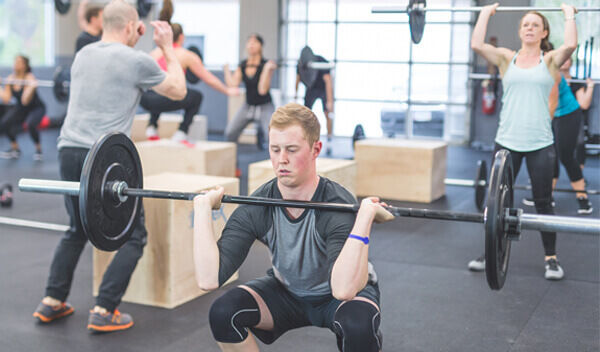Health Hub
Guide to hernia: everything you need to know

Some hernias can be symptomless. Others can grow in size, become more painful and impact day to day life.
Hernias can cause worry and upset and prevent you from enjoying life. Thankfully, they can be treated.
A hernia happens because of a weakness in the muscle tissue of the abdominal wall of the body, or within the groin area. This weakness eventually becomes a hole in the muscle, which leads to the surrounding tissue poking through the hole. This can cause a painful and visible protruding lump.
Mr Barry Paraskeva is a hernia specialist and surgeon here at King Edward VII’s Hospital. In this guide, he explains everything you need to know about the cause and treatment of hernias.
Is a hernia the same as a prolapse?
A hernia is different to a prolapse. A prolapse is when a pelvic organ pushes down through the muscles of the pelvis and protrudes through the vagina or the anus.
Different types of hernia
The main types of hernia that affect different parts of the abdomen or groin:
1. Inguinal hernias
An inguinal hernia is more common in men but can also affect women, and is the most common type of groin hernia.
This type of hernia occurs when a part of your bowel, or some fatty tissue, pushes through the muscle in your groin area at the top of your inner thigh.
2. Femoral hernias
A femoral hernia is like an inguinal hernia, but is far less common and usually occurs in women.
Like inguinal hernias, they can appear at the top of your inner thigh or groin area.
3. Umbilical hernias
Umbilical hernias are very common in young children, and especially babies, but they can affect adults too.
In babies, the hernia can become more visible when they laugh or cry.
An umbilical hernia occurs when part of your bowel, or fatty tissue, pushes through the abdominal muscle in your navel (belly button).
Umbilical hernias can also occur during and after pregnancy from the pressure of the growing baby.
4. Epigastric hernias
Epigastric hernias occur between your belly button and the lower part of your breastbone (sternum) near your rib cage. They can feel very tender.
5. Incisional hernias
An incisional hernia can occur after surgery. If a surgical incision in your abdomen hasn’t completely healed, some tissue can push through.
What are the symptoms of a hernia?
If you’ve developed a hernia, you may be able to feel a lump in your groin or abdomen area, which can also be painful.
You may feel the lump all the time, or you may feel it coming and going.
Sometimes the lump is only present when you’re active during the day. It can feel like it then disappears in the evening when you’re at rest or lying down.
Generally, a hernia will gradually increase in size over time. Often also becoming more prominent and uncomfortable.
Is a hernia serious?
Most hernias do not cause serious problems.
Some however, may cause severe pain, abdominal cramps and vomiting. You should not ignore these symptoms.
This is because these symptoms can sometimes point to an obstructed bowel or strangulated hernia.
An obstructed bowel or strangulated hernia are surgical emergencies.
When tissue, or a part of the intestines, becomes trapped in the hernia, this can cause a blockage (obstruction). A strangulated hernia is one that is cutting off blood supply to internal organs or tissue.
If you think you may have a hernia, it is important to speak with your doctor.
What causes a hernia?
Hernias occur when the muscles of the abdomen or groin become weak and can no longer hold tissue in place.
They’re usually caused by repeated strain on the muscles.
This strain can be caused by activity like:
- Intense physical exercise
- Straining to go to the toilet
- Prolonged heavy lifting
- Chronic coughing
- Pregnancy and childbirth
How is a hernia diagnosed?
If you or your doctor think you may have a hernia, your doctor or specialist will ask you a series of questions. These will relate to the lump and/or pain that you feel.
Your doctor will then examine the affected area to diagnose the presence or absence of a hernia.
Will I need any tests?
Sometimes, it can be difficult for a doctor to diagnose a hernia just by asking medical questions and examining the affected area.
Or, it may be that your hernia is a complex case and symptoms need to be investigated further.
In these cases, your doctor will usually request that you have an ultrasound scan. At King Edward VII’s Hospital, this can be carried out on the same day as your consultation. The result of this scan will help your doctor make their diagnosis.
If your hernia is very complex, you might need to have an MRI scan to look more deeply at the structure of your abdominal wall or groin area.
A CT scan is also sometimes necessary in complex cases. And, especially if you have an incisional hernia after having had abdominal surgery.
Once you’ve been diagnosed, your doctor or specialist will then discuss your treatment options.
If your symptoms are found to be caused by something other than a hernia, you will be referred to the appropriate specialist.
How is a hernia treated?
A hernia is treated by fixing the weakened muscles that caused your intestines to protrude into a visible lump. Some hernias require surgery to do this, and some can be treated with physiotherapy.
Will I need surgery?
If you need surgery, your surgeon will explain the procedure to you. Generally, it involves pushing the hernia back in where it should be, and repairing the weakened muscle.
Where a hernia requires the use of surgical mesh, this is stitched in place. There are different kinds of meshes – what type of mesh your surgeon will use will depend on the type of hernia you have.
Each mesh is designed to stay in place permanently and become part of the muscle wall in the affected area. It will help prevent the hernia from returning.
How will I feel after hernia treatment?
How long you stay in hospital will depend on the type, size and complexity of your hernia.
Some hernias are repaired as a day case, and some need an inpatient stay. You may also need to be an inpatient if you have other medical conditions that will affect your recovery.
Your specialist will be able to advise when you can get back to normal activities. And, if appropriate, your physiotherapy team will devise a core rehabilitation programme you can follow to help your recovery.
Can I fix my hernia with exercise?
If you have a hernia, exercise (especially unsupervised) can put added strain on your hernia. This could cause your hernia to protrude even further.
While physiotherapy will help your hernia treatment or recovery, it’s important to exercise safely.
Can a hernia come back?
Modern treatments for hernia are designed to hold the muscle in place permanently. If you feel like your symptoms are returning, it’s important to speak to your doctor or specialist.
More information
- If you think you may have a hernia, please see your GP in the first instance. (Don’t have a GP?)
- For further information, please visit the dedicated KEVII Hernia Centre. Alternatively, if you have spoken with your GP, you can make an enquiry online to speak with a hernia specialist.
Article Sections
Latest Hospital News
Should you wish to speak to our press team, please visit Press Enquiries




